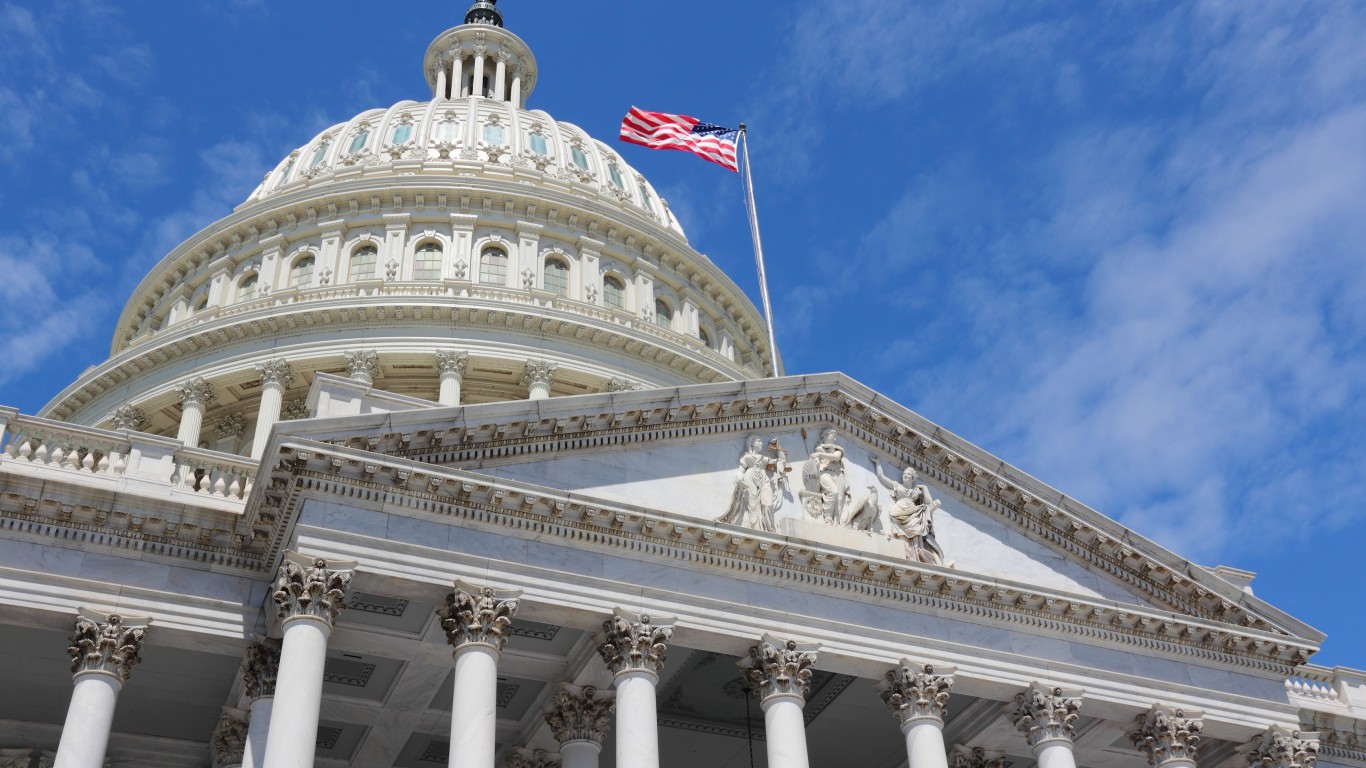
In May, the Congressional Budget Office (CBO) projected a 10-year federal budget deficit of $11.4 trillion. In its latest projection, released Wednesday, the CBO predicts the 10-year deficit will increase by $809 billion to $12.2 trillion.
The recently passed Bipartisan Budget Act of 2019 added $1.7 trillion to the CBO projection and suspended the nation’s debt ceiling until July of 2021. The CBO said that projected reductions in projected net interest on the national debt “offset much of that increase.” The two-year budget was passed by Congress last month and signed by the president on August 2.
The CBO also noted that over the 2020 to 2029 projection period, deficits are expected to average 4.7% of gross domestic product (GDP). Deficits of that size would be significantly larger than the 2.9% of GDP that deficits averaged over the past 50 years.
According to CBO projections, the federal budget deficit will reach $960 billion this year and average $1.2 trillion in the 10-year period through 2029. CBO concludes that federal debt held by the public rises from 79% of GDP in 2019 to 95% in 2029, its highest level since the end of World War II.
Real (inflation-adjusted) GDP is currently projected to rise by 2.3% in 2019, but annual output growth is projected to slow to an average of 1.8% between 2020 and 2023 and both output and potential output growth will average 1.8% from 2024 to 2029, an amount that is lower than the long-term historical average. The CBO attributed the slowdown to a labor force that is “expected to grow more slowly than it has in the past.”
But does anyone really care about budget deficits anymore? In the U.S. House of Representatives, 16 Democrats, 132 Republicans and one independent voted against the 2019 budget bill. Not all voted against the bill because they are concerned about rising U.S. debt, however. Of the Democratic objectors, 13 were so-called blue-dog Democrats who, like many Republican objectors, rankle at more spending and bigger deficits. Three Democrats opposed the added $100 billion for military spending.
The bill’s passage is part of a long trend of talking about the federal deficit but the lack of political will to do anything about it. At the end of 1980, just before Ronald Reagan took office, the total federal deficit was $930.12 billion. Following 12 years of Republican control of the Oval Office, the federal deficit had quadrupled to $3.8 trillion when Bill Clinton took office in 1993. In January 2001, George W. Bush moved into the White House with a deficit of $5.66 trillion, less than double the total of eight years earlier.
When Barack Obama took office in 2009, the deficit stood at $12.31 trillion, more than double its total in 2000. Obama left office with a deficit of $19.98 trillion, up by about a third, and Donald Trump has run the deficit to $22.03 trillion in his first two years in office.
In 2029, federal debt held by the public is forecast to reach $29.32 trillion, not far below forecast GDP for that year of $30.85 trillion. Will deficits and total debt be a problem then?
Are You Still Paying With a Debit Card?
The average American spends $17,274 on debit cards a year, and it’s a HUGE mistake. First, debit cards don’t have the same fraud protections as credit cards. Once your money is gone, it’s gone. But more importantly you can actually get something back from this spending every time you swipe.
Issuers are handing out wild bonuses right now. With some you can earn up to 5% back on every purchase. That’s like getting a 5% discount on everything you buy!
Our top pick is kind of hard to imagine. Not only does it pay up to 5% back, it also includes a $200 cash back reward in the first six months, a 0% intro APR, and…. $0 annual fee. It’s quite literally free money for any one that uses a card regularly. Click here to learn more!
Flywheel Publishing has partnered with CardRatings to provide coverage of credit card products. Flywheel Publishing and CardRatings may receive a commission from card issuers.
Thank you for reading! Have some feedback for us?
Contact the 24/7 Wall St. editorial team.


